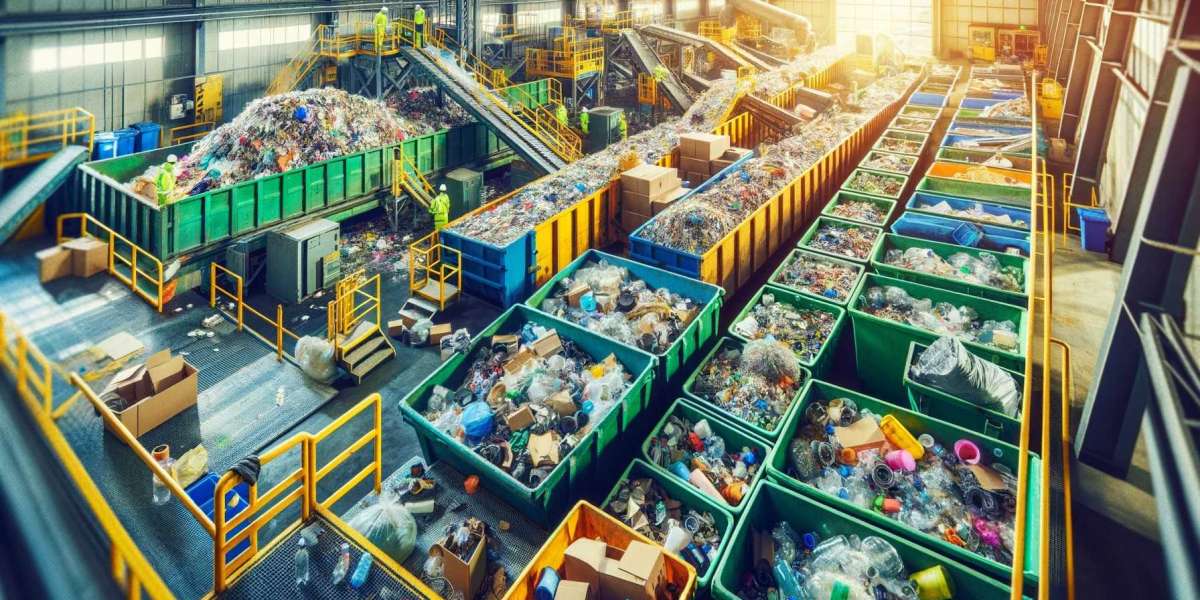How Skip Bin Companies Implement Recycling Practices
Let's explore the recycling practices of skip bin companies, highlighting their importance and impact.
1. Sorting and Segregation of Waste
One of the primary recycling practices of skip bin companies is the sorting and segregation of waste. When waste is collected, it is taken to a facility where it is sorted into different categories. This process involves separating recyclable materials such as plastics, metals, paper, and glass from general waste. Sorting is a critical step because it ensures that recyclable materials are not contaminated and can be processed efficiently.
At the sorting facility, waste is often placed on conveyor belts where workers manually sort through the materials. Advanced facilities may use automated systems that include magnets, air classifiers, and optical sorters to separate materials.
Proper sorting helps maximise the amount of waste that can be recycled, reducing the volume sent to landfills.
2. Processing Recyclable Materials
After sorting, recyclable materials are processed to prepare them for reuse. This processing can involve several steps depending on the type of material.
For example, plastics may be shredded, cleaned, and melted down to form new plastic products. Metals are typically melted and reformed, while paper is pulped and processed into new paper products. Glass is crushed and melted to make new glass items.
Processing recyclable materials requires specialised equipment and facilities. Skip bin companies often partner with recycling plants that have the necessary infrastructure to handle these materials.
By ensuring that recyclables are processed correctly, skip bin companies contribute to the creation of new products from old materials, supporting a circular economy.
3. Green Waste Recycling
Green waste, such as garden clippings, leaves, and branches, is another important category for recycling.
Skip bin companies collect green waste separately and take it to composting facilities. Here, the organic matter is broken down through natural processes to create compost. This compost can be used to enrich soil in gardens, farms, and landscaping projects.
Composting green waste not only reduces the amount of waste sent to landfills but also provides a valuable resource for improving soil health. It helps retain moisture, reduces the need for chemical fertilizers, and promotes healthy plant growth.
4. Construction and Demolition Waste Recycling
Construction and demolition (CD) waste is a significant part of the waste stream. Skip bin companies often handle large volumes of CD waste, which includes materials like concrete, bricks, wood, and metal. Recycling practices for CD waste involve separating and processing these materials for reuse in new construction projects.
Concrete and bricks can be crushed and used as aggregate in new concrete or road base. Wood can be chipped and used as mulch or processed into new wood products. Metals are melted and reformed into new metal items.
By recycling CD waste, skip bin companies help reduce the demand for virgin materials and minimise the environmental impact of construction activities.
5. E-Waste Recycling
Electronic waste, or e-waste, is another critical area of focus for skip bin companies. E-waste includes items like old computers, televisions, mobile phones, and other electronic devices. These items contain valuable materials such as metals and plastics, as well as hazardous substances that need to be handled carefully.
Skip bin companies collect e-waste and transport it to specialised recycling facilities. Here, the e-waste is dismantled, and valuable materials are recovered for reuse. Hazardous substances are safely disposed of to prevent environmental contamination.
E-waste recycling helps conserve resources and ensures that toxic materials do not harm the environment.
Partnerships and Collaboration
Skip bin companies often collaborate with other organisations to improve recycling outcomes. Partnerships with recycling facilities, local councils, and environmental organisations can enhance the efficiency and reach of recycling programs. Collaborative efforts can lead to shared resources, better infrastructure, and increased community participation in recycling.
Through partnerships, skip bin companies can expand their impact and contribute to larger sustainability goals. Working together with other stakeholders helps create a more integrated and effective waste management system. These collaborations are essential for addressing the complex challenges of waste and recycling in a holistic manner.
Some skip bin companies offer end-to-end waste management services, covering everything from skip bin hire, waste collection, to recycling. Skip Bins Malaga is an example of such a company, providing comprehensive solutions to manage and recycle waste efficiently.
Challenges and Opportunities
Despite the many benefits of recycling, skip bin companies face several challenges. Contamination of recyclable materials, fluctuating market demand for recycled products, and the cost of recycling infrastructure are some of the hurdles they encounter. However, these challenges also present opportunities for improvement and innovation.
By investing in better sorting and processing technologies, skip bin companies can reduce contamination and improve recycling efficiency. Advocating for stronger recycling policies and market incentives can help create a more stable demand for recycled products. Addressing these challenges is crucial for advancing the recycling industry and achieving sustainability goals.














